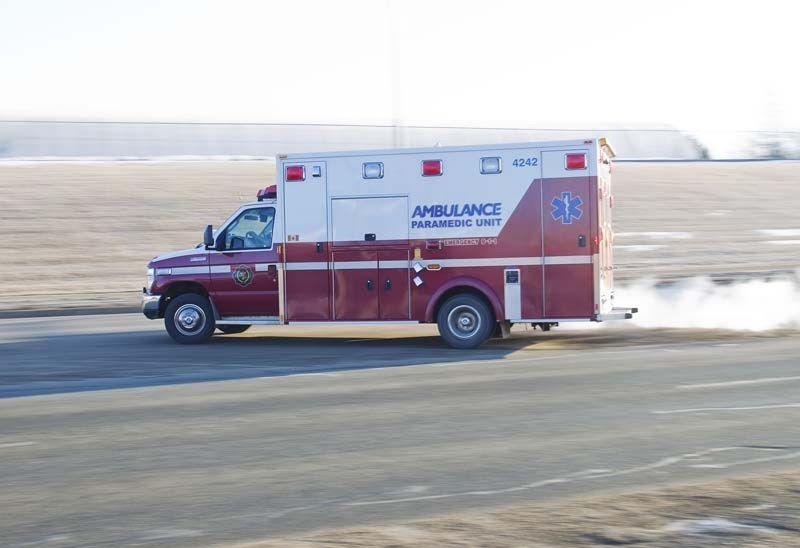A conclusion to the city’s ongoing negotiations with Alberta Health Services over ambulance service may be within sight.
“Bottom line is I’m hopeful we’ll be able to get a contract,” said Coun. Cathy Heron. “Much more hopeful than I was a few months ago.”
Heron’s optimism comes after a recent trip to the Alberta Urban Municipalities Association conference in Calgary, where she got a chance to talk to the person now in charge of negotiating with municipalities across the province.
St. Albert wants to continue to be contracted by AHS to run the two ambulances stationed in the city and currently operated by the city. Negotiations have been ongoing.
“There was really not room for negotiations,” Heron said, but now that there’s been so much change at AHS, it might go better.
“He said they’ve been given a new mandate to go back to the negotiation table,” Heron said of her conversation with the negotiator.
While other municipalities are speaking out about the consolidation of dispatch services to three centres for the whole province, St. Albert changed to regional dispatch a few years ago. However, Heron said it’s important to keep the ambulance contract because it means St. Albert fire services knows where the ambulances are and can help respond if necessary via the 911 call centre.
“If we don’t have the contract with the province, we lose that eye,” Heron said. St. Albert firefighters are also trained as ambulance operators.
“We prefer an integrated service. We like our firefighters to be trained as paramedics, EMS, so we have advanced life support and basic life support,” Heron said. So keeping the contract – and the ability to know where the ambulances are, and if they are out of the city limits – is important.
“This is a major issue. So I think council’s point of view is we are willing to subsidize – to a point,” she said.
Chris Jardine, the city’s general manager of community and protective services, described the negotiation process as “slow.”
“One of the biggest challenges being is on the AHS side they seem to have constantly changing mandates which makes it difficult to get some straight answers and have straight negotiations,” Jardine said.
“All I can say is what they’re telling us, which is we’ll have something determined by the end of this month,” Jardine said.
Since being integrated into the provincially-administered dispatch system, St. Albert has seen its response time increase, Jardine said.
“St. Albert, based on our model, had a very strong ambulatory service. It has not remained at that same strength. It has degraded, it has actually degraded quite a bit but it has bounced back a little,” Jardine said.
AHS doesn’t measure response time to every call the way the city did, but currently statistics show the response time to emergency calls within St. Albert is running at a response time of just over 10 minutes or less, to 90 per cent of the calls.




